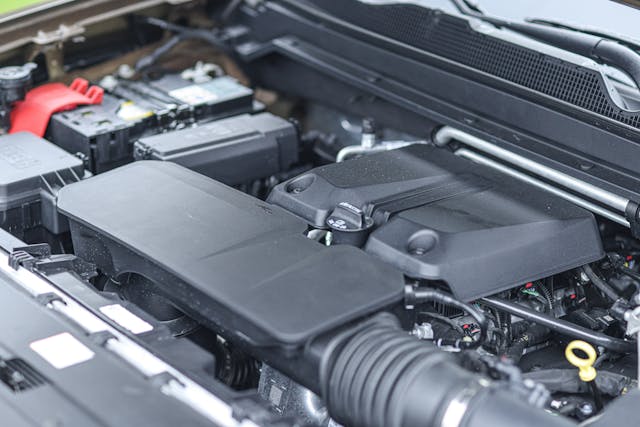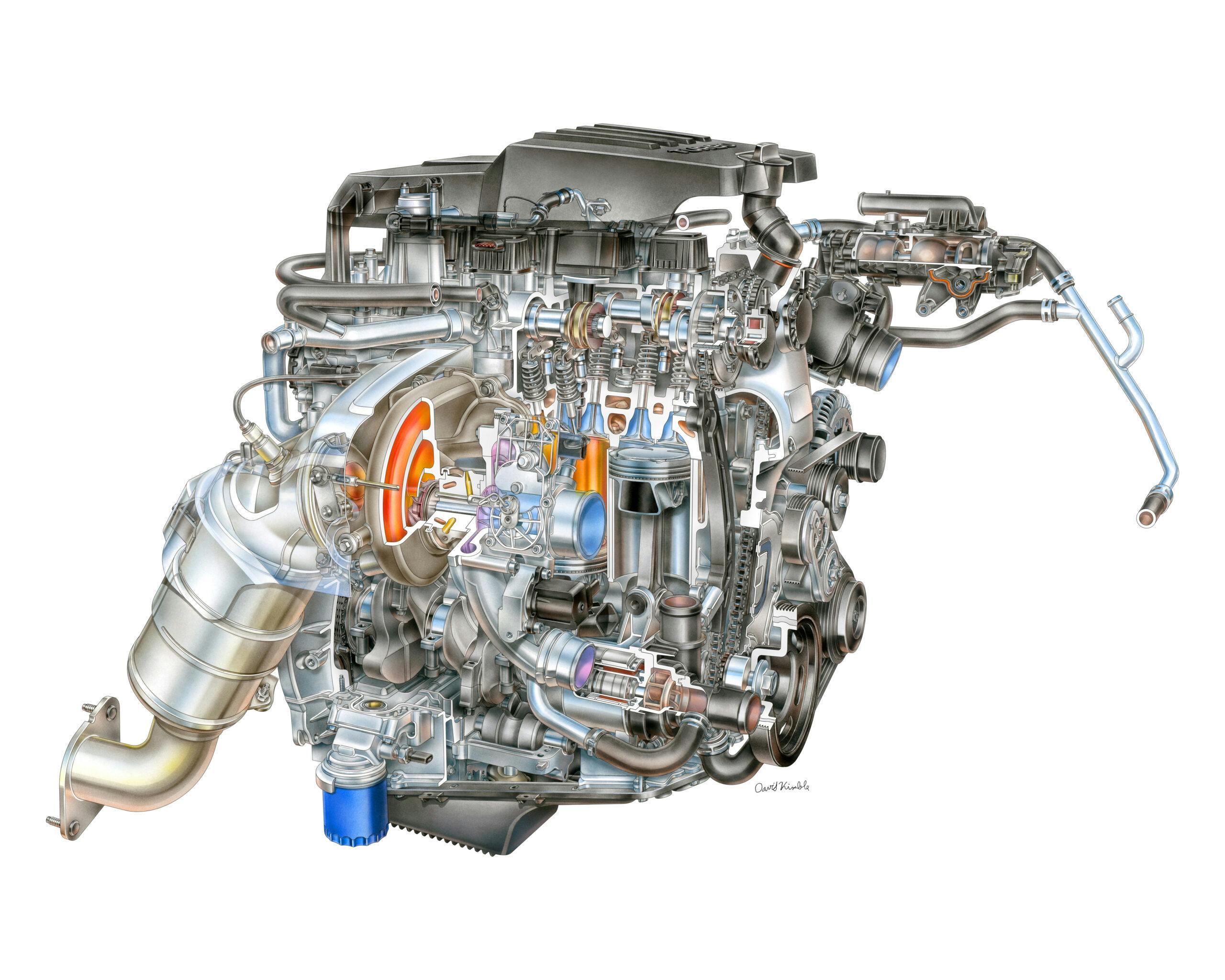Media | Articles
Chevrolet confident in L3B four-cylinder, adds 100K-mile powertrain warranty
As we reported earlier this year, Chevrolet is making some small but welcome changes to the 2024 Silverado. The 3.0-liter Duramax inline-six, the only diesel engine offered in the 1/2-ton market, saw its output increase from 277 hp and 460 lb-ft of torque to 305 hp and 495 lb-ft of torque. (That exceeds the power output of the 6.6-liter Duramax V-8 when it launched back in 2001!) The newest change to the 2024 Silverado lineup, however, is the addition of a five-year, 100,000-mile powertrain warranty for the 2.7-liter L3B TurboMax gasoline inline-four engine.
We’ve written about the mighty L3B four-cylinder in detail and have experienced it in both the Silverado and Colorado. In both applications, its broad torque curve pairs well with GM’s redesigned eight-speed automatic transmission to deliver seamless power, and it features a lot of tough parts just like you’d find in a diesel. It’s the standard engine on most of the Silverado lineup, starting with the WT and continuing on to the Custom, Custom Trail Boss, LT, LT Trail Boss, and RST.
We asked Chevrolet if there was anything new for the 2024 engine that prompted the warranty upgrade, and it’s the same L3B with the same tune that’s been in service since 2022. Sean Szymkowski, Senior Manager of Chevrolet Trucks Communications, told us, “We’re proud this warranty goes beyond competitors’ offerings in the light-duty, full-size pickup segment for a gasoline-powered engine.”
Having two powertrain options with 100,000-mile warranties could give Chevrolet a leg up on its competition, although it’s already been doing quite well on the sales front against Ford and Ram. This same powertrain combination in the Chevrolet Colorado will maintain the five-year, 60,000-mile warranty that also previously applied to the Silverado’s L3B, matching the powertrain warranty of its chief competitor, Toyota Tacoma. The big difference is that with Colorado, a turbo-four is the only powertrain available.
Our thinking? Chevrolet might want its tough four-cylinder to be perceived as more than just a “base engine” when it’s on the showroom alongside a 355-hp 5.3-liter V-8 and 420-hp 6.2-liter V-8.
Marketplace
Buy and sell classics with confidence
***
Check out the Hagerty Media homepage so you don’t miss a single story, or better yet, bookmark it. To get our best stories delivered right to your inbox, subscribe to our newsletters.






With the past of most turbo engines till they were built right it created a lot of mis trust.
Till they water cooled housings and actually built better blocks and heads Turbos earned a bad rep.
Today much of that is all in the past. Most of these engines are built much like race engines 20 years ago.
I ran a LNF 2.0 Ecotec for 10 years as a daily driver that could hit 23 psi of boost and 300 HP. I drove it hard and no failures.
But many on the web either do not understand todays engines or just are uninformed of the durability of todays engines and it has speed mistrust.
Also Ford has yet to solve the durability like most,
If GM did not expect this engine to last they never would have made this move.
Also the future of ICE is key on small, turbo engines as it will be the only way to keep them alive till they are forced out.
The future emissions and mpg numbers are crazy and they need to get every mile from these engines. This turbo will replace most 3.6 v6 engines in the next few years.
The issue people have with this engine is the carbon build up on the cylinder heads, Chevy hasn’t said what they are doing about that!
They need to use Direct Injection and Port Injection like Toyota does. It clears out the carbon just fine. Good to see the warranty increase.
I’d love to know why the same powertrain, in a smaller truck (theoretically less wear due to less weight) stays with a fairish warranty. I disregarded both the new Canyon and Colorado due to a 4 cyl only offering, but the warranty could sway me back.
Diesel is built to take the pressure, so it should serve well.
They shut make a diesel Pontiac Lemans sport
Carbon build up and acceptable gear whine says gm. The mileage is the same as a 5.3 V8. The warranty should be for 100K also. Tiny engine pushing a heavy truck, what could go wrong? It’s the only gm truck with a discount so they aren’t selling well.
I meant 10 years on the warranty
I wouldnt trust that engine as far as I could throw it.
Automakers will find any excuse to not honor the warranty. If you want me to be convinced, show me the percentage of engines submitted for warranty claims that were actually replaced at no cost to customer.
I turbocharged my first gasoline engine in 1976. It was the way of the future then and it is the way of the future now (in internal combustion engines anyway).
Of the many I’ve built and owned,I only had two failures. One as a result of overboost and another due to sudden detonation (both my fault). Proper care and operation make the turbocharged engines reliable (even with carburetors).
I just bought a new ’23 Camaro with the turbocharged 2.0 four. Very happy with it and I will install an oil catch can to ward off the intake valve carbon problem.
May want to hold off on the catch can as there is a story on the web of a v8 engine warranty claim being denied on a Camaro due to a customer installed catch can. This was on a high hp v8 as well so out big $$$$
May want to hold off on the catch can as there is a story on the web of a v8 engine warranty claim being denied on a Camaro due to a customer installed catch can. This was on a high hp v8 as well so out big $$$$